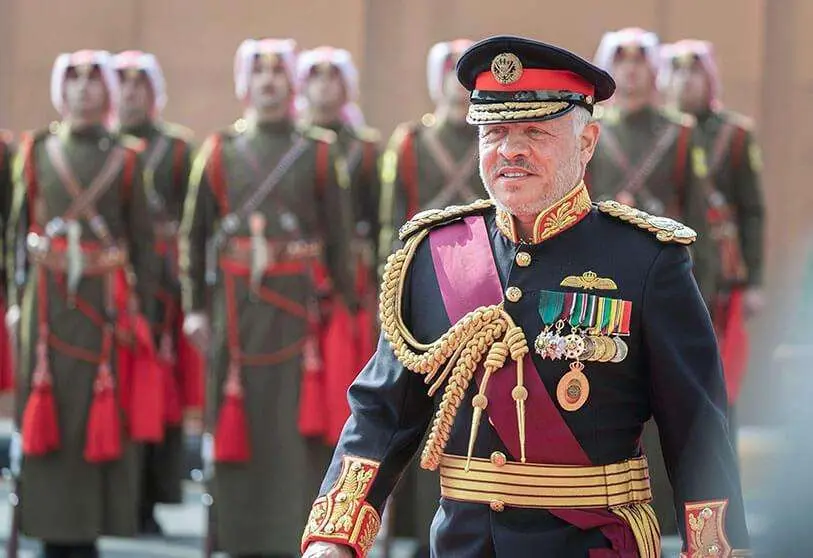Jordan: family crisis or political crisis

It is a country that is hardly talked about, that does not make the headlines and seems to be out of the news, as if nothing important is happening there. Yet Jordan is the cornerstone that keeps the Middle East in balance.
Between Iraq and Syria in flames, Palestine under occupation and Israel's neighbouring country always in search of new territories, Jordan is a precariously stable country and has not ceased to absorb all the tensions surrounding it.
Firstly, Israel wants to turn it into an alternative country for the Palestinians. Of the nine million inhabitants of the Hashemite kingdom, 2.2 million are of Palestinian origin. And since the Syrian war, it has been home to 1.3 million refugees.
If Jordan is discreet, it occupies an important place on the political chessboard in the region and the Arab world. Recently, Amman thwarted Netanyahu's visit to the United Arab Emirates by preventing his plane from flying over the country. An important visit in the Israeli prime minister's electoral calendar. The ban comes in retaliation for the cancellation of Crown Prince Hussein's visit to East Jerusalem because Tel Aviv wanted to "frame" his visit. As a reminder, the Esplanade of the Mosques is under Jordanian control for historical reasons.
The Jordanian Royal Family cultivates discretion and if Queen Rania has been criticised for her Palestinian origins and her family's enrichment, for some years now she has remained in the role of first lady and invests in charity.
The Hashemite royal family values its image and the cohesion of its members and, until now, dirty laundry has always been washed in the family.
But this time the scandal erupted and King Abdullah felt that his half-brother Hamza had gone too far. But the beginnings of a war were already there. The prince who was supposed to succeed his brother as head of the country, according to Jordanian tradition, was stripped of the title of heir to the throne in 2004. And it is King Abdullah's son who is preparing to succeed his father.
Hamza bin Hussein has always disagreed with royal decisions, but this time he is accused of contacting tribal leaders hostile to his brother and preparing a plot to destabilise the country.
The tribes are the basis of power in Jordan and the Hashemite family has always found support among their leaders, who now feel abandoned and marginalised. The Jordanian state was founded on the tribes' loyalty to the king and it is perhaps a new loyalty that the young dissident prince, who denies all the accusations against him, has gone in search of. "I am not the person responsible for the corruption and incompetence that has prevailed among our rulers for the last 15 to 20 years and is getting worse," he said, adding that he would not take orders. "When they tell you that you can't go out, you can't tweet, you can't contact people, only your family," he added.
It is true that Jordan is experiencing a lot of political and government unrest. In 2019, protests had rocked the Kingdom in the wake of unpopular IMF-backed measures such as an income tax hike, which the government eventually cancelled after social outcry. But the Kingdom has not fared any better since then. Unemployment, inflation, taxes on basic necessities... life in Jordan is increasingly difficult and corruption is one of its main ills.
Many Jordanians are leaving the country to work in the Gulf. Forty per cent of these workers opt for Saudi Arabia. But the petrodollar countries have, since the pandemic, laid off many foreign workers. An estimated 6,000 Jordanians have lost their jobs under these conditions and are awaiting repatriation.
It is in this climate of tension that Prince Hamza's dissent has intervened. But tempers seem to be calming in the Hashemite palace and the mediations have borne fruit. After 48 hours under house arrest, Hamza bin Hussein published a letter expressing his support for his brother King Abdullah and calling for the same to be done, based on a verse from the Koran. He also stated that "the interest of the nation is above all other considerations".
Tensions within the Jordanian royal family seem to be easing, but what about those in the country as a whole?

